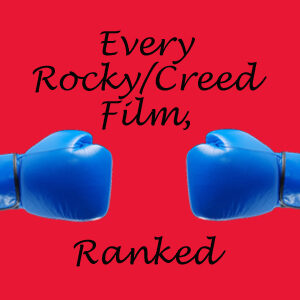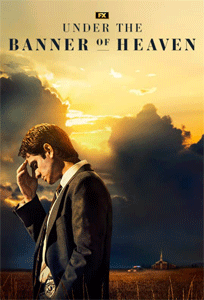As a rule of thumb, I figure religions are neutral forces. Good or evil people will use religion as an outlet for their ingrained good or evil. “Under the Banner of Heaven” (FX), though, points out a negative factor: the shaping of people’s very brains from childhood.
In adapting Jon Krakauer’s 2003 true-crime book about murders in the 1980s (accurately portrayed with a healthy dose of brown paneling rather than the cliché of neon), creator Dustin Lance Black does craft a post-“True Detective” murder-mystery miniseries. But it’s the stuff in the cracks of the main narrative – the history lesson of the Mormons’ journey to Utah and the way the religion affects (controls?) the characters’ thought processes – that will stay with me.
As an atheist, I go into most religion-based stories with little knowledge of the details. I’m most impressed with this series as a portrayal how religion affects the mind of small-town Utah detective Jeb Pyre (Andrew Garfield).
“Under the Banner of Heaven” (2022)
7 episodes, FX
Creator: Dustin Lance Black, based on the book by Jon Krakauer
Stars: Andrew Garfield, Sam Worthington, Daisy Edgar-Jones
True believer
Garfield gives an earnest turn as this Latter Day Saint who is excellent at his job but has his faith shaken when it seems likely the murders of Mormon mother Brenda Lafferty (Daisy Edgar-Jones) and her baby daughter were not committed by outsiders. Rather, they were likely killed by FLDS (Fundamentalist Latter Day Saints), perhaps within the Lafferty clan.
“UTBOH” is scholarly in the way it flashes back to Mormon history. Brenda’s husband Allen (Billy Howle, nicely playing troubled yet thoughtful) goes from suspect to an inadvertent teacher to Jeb from his cell.
We see how Joseph Smith (Andrew Burnap), the Mormon founder who claimed to hear the voice of God telling him he’s a saint and he should take multiple wives, was persecuted in Ohio and Missouri. But later, Brigham Young (Scott Michael Campbell) himself does the persecuting of others in Utah. “UTBOH” shows Mormon leaders censoring history in 1984 as if it’s “1984.” If the portrayal is accurate and still holds today, it’s safe to say this miniseries will not be available from the BYU library.
However, “UTBOH’s” scholarly veneer goes away when we cut back to any 1984 character. All the performances are deeply felt, and some have a spiritual touch. Edgar-Jones is pretty to begin with, but the makeup and clothing team and cinematographer Gonzalo Amat make Brenda luminous. When Brenda meets Allan’s family in flashbacks, “pretty” is the core trait they see in her.
Garfield also seems to glow at times – like when Jeb is treated to a rare moment of clarity from his dementia-suffering mother (Sandra Seacat). When he leads family prayers (it’s a given that they are led by the father, unless he assigns the duty), we see on his face that it’s an exercise of great joy.

Gentile moral center
The performance that might most stick with me, oddly, is a straightforward one from Gil Birmingham as Jeb’s Native American partner Bill Taba. Looking at his resume, I’ve seen Birmingham in many things, but wow does his voice of authority resonate through “UTBOH.” Even though he’s the second-in-command, he is the moral lead.
The gum-chewing Taba is a Paiute Indian, a target of casual racism from Mormons. But also, Paiutes are considered allies in a key chapter amid Young’s leadership. This offends Taba, and we’ll understand why from one of those historical flashbacks.
When it comes to the Laffertys beyond Brenda and Allan, where to even start with the dramatis personae? Wyatt Russell stands out as Dan, who explores fundamentalist teachings. At first, he’s like the crazy uncle who isn’t so crazy; he’s focused on the immorality – and possibly illegality – of federal taxation within supposedly sovereign states.
But that morphs into Dan’s interest in polygamy – a subject that’s surprisingly not mentioned in the first few episodes. I believe that consensual polygamists should not be shunned by society like they are; in this age of social justice, I’m surprised they aren’t the next victimized group targeted for protection. But “UTBOH” forces me to think about polygamy in a non-theoretical way. FLDS Scripture is about forced polygamy: The husband chooses his wives, and they can be underage. And the first wife not only has no say in it, she will be condemned to death if she doesn’t consent to have sister wives.
Sam Worthington’s masculine Ron and Rory Culkin’s sniveling Sam deserve mention among the Lafferty brothers. I did have trouble keeping them all straight, especially when they grow beards as part of FLDS tradition. However, this didn’t affect my understanding of the story.
Hypocrisy: The universal religion
Although the whodunit and a threat of additional murders kicks the plot into gear in the final episode, “UTBOH” remains concerned with the nature of faith. In the abstract, the notion of murder as part of the doctrine of a “correct” religion is insane, but as things unfold, we see how otherwise sane people can be drawn to it.
Jeb is in a horrible position. He knows his religion leads some people to murder. Mormonism puts the husband above the wife in most ways, but it features a rather ingenious entanglement of checks and balances. If Jeb rejects his religion – a sane response – he will lose his wife (Adelaide Clemens) and daughters. In order to maintain his new belief system (family as a sort of non-denominational spiritual unit), he has to be a hypocrite.
This conflict of logic extends to Jeb’s best friendship. In an understated thread amid his wider crisis of faith, Jeb must face the fact that Bill is simultaneously a good person with an excellent value system and – according to Scripture — of lesser value than Mormons.
Voices in his head
Although the answer is obvious to an outside observer – Jeb’s religion is BS – we can see through Garfield’s performance that Jeb, because of his upbringing, can’t distinguish his own thoughts from “God’s revelations.”
It’s striking to realize that some religious people don’t grasp what thinking is, because from a young age they’ve been taught that all answers are available from Scripture or the church. That said, thinking does come naturally to Jeb (he simply mischaracterizes his thoughts as “voices in his head”): For example, he recognizes without the guidance of the church that rape and murder are wrong.
This story’s conflict is as old as religion itself: It’s between groups who disagree about the precise amount with which to believe Smith’s writings. And within the picking and choosing from the Book of Mormon, conflicts arise about what to pick and choose.
“Under the Banner of Heaven” ultimately argues that hypocrisy – not religion – makes the world go ’round. For every religious person who overlooks the evils of their faith’s history, there is often a family member who overlooks their loved one’s decision to overlook. Maybe that’s how it has to be.

